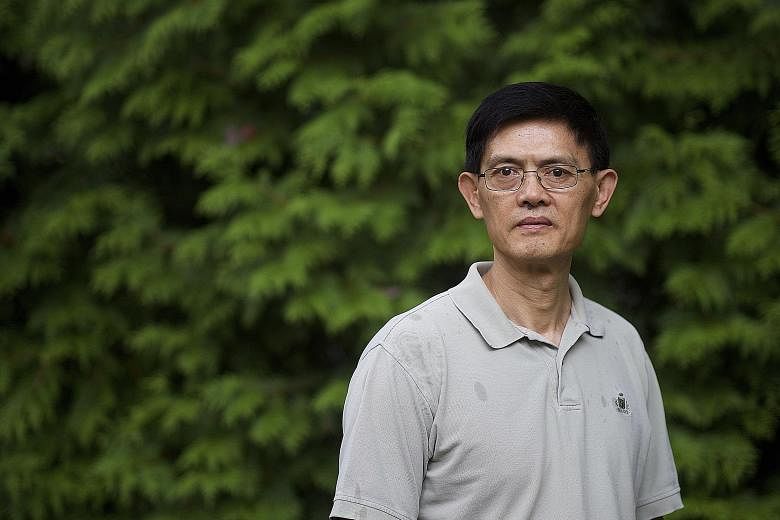WASHINGTON • When the United States Justice Department arrested the chairman of Temple University's physics department in May and accused him of sharing sensitive US-made technology with China, prosecutors had what seemed like a damning piece of evidence - schematics of sophisticated laboratory equipment sent by Professor Xi Xiaoxing to scientists in China.
Prosecutors said the schematics revealed the design of a device known as a pocket heater, used in semiconductor research. Prof Xi had signed an agreement promising to keep its design a secret.
Months later, long after federal agents led him away in handcuffs, independent experts found something wrong with the evidence at the heart of the case - the blueprints were not for a pocket heater.
Faced with sworn statements from leading scientists, including an inventor of the pocket heater, the Justice Department on Friday afternoon dropped all charges against Prof Xi, who is a US citizen.
It was an embarrassing acknowledgment that prosecutors and federal agents did not understand - and did not do enough to learn - the science at the heart of the case before bringing charges that hurt Prof Xi's career and gave the impression he was spying for China.
"I don't expect them to understand everything I do," Prof Xi, 57, said in a telephone interview.
"But the fact that they don't consult with experts and then charge me? Put my family through all this? Damage my reputation? They shouldn't do this. This is not a joke. This is not a game."
To counter an onslaught of outside hackers and inside employees trying to steal state and corporate secrets, the government has launched aggressive espionage investigations and prosecutions, and increased cyber-defences.
Prof Xi's case raises questions about whether the Justice Department, in its rush to find Chinese spies, is ensnaring innocent US citizens of Chinese lineage. A similar case was dismissed a few months ago in Ohio.
A spokesman for Mr Zane Memeger, the US Attorney in Philadelphia who brought the charges, did not elaborate on the decision to drop the case. In court documents, the Justice Department said "additional information came to the attention of the government".
The filing gives the government the right to file the charges again if it chooses.
A spokesman for Mr John Carlin, the Assistant Attorney-General overseeing the crackdown on economic espionage, had no comment on whether Justice Department officials in Washington reviewed the case.
The science involved in the case is, by any measure, complicated. Prof Xi's lawyer, Mr Peter Zeidenberg, said that, despite the complexity, the government apparently never consulted experts before taking the case to a grand jury. Prosecutors thus misconstrued the evidence, he said.
He said the authorities saw e-mails to scientists in China and assumed the worst. He said the e-mails represented the kind of international academic collaboration that governments and universities encourage. The technology discussed was not sensitive or restricted, he said.
"If he was Canadian-American or French-American, or from Britain, would this have ever even got on the government's radar? I don't think so," Mr Zeidenberg said.
Prof Xi choked back tears as he said: "I barely came out of this nightmare."
NEW YORK TIMES

